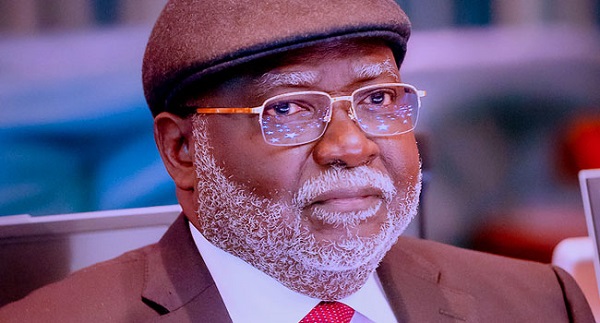COVID-19 vaccine: Experts insist targeted interventions key to ending hesitancy
EXPERTS, in a study, say targeted interventions are needed for desired COVID-19 vaccination uptake and herd immunity, given high vaccine hesitancy among adults in Nigeria.
In the study, researchers assessed the prevalence of vaccine hesitancy among healthcare workers, university students, and the general adult population across the six geopolitical zones of Nigeria and found that it was high and diverse among the socio-demographic spectra of the country.< /p>
According to the study, COVID-19 vaccine hesitancy was highest among the Igbo ethnic group, Christian faith, residence in the North East and North West geopolitical areas and those with an aversion for vaccines manufactured abroad.
The 2022 study, titled “COVID-19 Vaccination Hesitancy in Six Geopolitical Zones in Nigeria: A Cross-sectional Survey” is published in the Pan African Medical Journal.
Out of 1,615 respondents, more than half were healthcare workers, 97.4% had at least secondary education and the majority 60.5% belonged to the upper social class. The prevalence of vaccine hesitancy was 68.5% and 67.2% preferred foreign-made COVID-19 vaccines.
On multivariate regression analysis, residence in North East and North West geopolitical zones, Igbo ethnic group, Christians, nurses, pharmacists, and participants with no confidence in foreign vaccines were more likely to be vaccine hesitant. Only age and marital status were not statistically significantly associated with vaccine hesitancy.
The study indicates that the higher likelihood of vaccine hesitancy in the North, particularly in the Northeast and Northwest geopolitical zones, may be due to their traditional homogeneity and hesitancy history of immunization programs, including the eradication of poliomyelitis. campaign.
They said: "Not surprisingly, in this study, respondents who had no confidence in foreign-made vaccines were four times more likely to have vaccine hesitancy, compared to their counterparts who trusted these vaccines.
“Therefore, interventions to build public confidence in the COVID-19 vaccine have been recommended to overcome some of these barriers to improving COVID-19 vaccine uptake. particularities of each place and be approached with the utmost sincerity.
“It appears that the varying context will continue to determine attitudes towards the COVID-19 vaccine and associated vaccine hesitancy. -19 is supported in the face of the different waves and mutant strains of COVID-19 encountered so far."
COVID-19 vaccine uptake has been relatively low in most low- and middle-income countries compared to developed countries. Vaccination hesitancy has been identified as a barrier to vaccination with other vaccine-preventable diseases in Nigeria. Yet the extent of vaccine hesitancy against COIVD-19 and the factors at play in Nigeria remain unclear.

EXPERTS, in a study, say targeted interventions are needed for desired COVID-19 vaccination uptake and herd immunity, given high vaccine hesitancy among adults in Nigeria.
In the study, researchers assessed the prevalence of vaccine hesitancy among healthcare workers, university students, and the general adult population across the six geopolitical zones of Nigeria and found that it was high and diverse among the socio-demographic spectra of the country.< /p>
According to the study, COVID-19 vaccine hesitancy was highest among the Igbo ethnic group, Christian faith, residence in the North East and North West geopolitical areas and those with an aversion for vaccines manufactured abroad.
The 2022 study, titled “COVID-19 Vaccination Hesitancy in Six Geopolitical Zones in Nigeria: A Cross-sectional Survey” is published in the Pan African Medical Journal.
Out of 1,615 respondents, more than half were healthcare workers, 97.4% had at least secondary education and the majority 60.5% belonged to the upper social class. The prevalence of vaccine hesitancy was 68.5% and 67.2% preferred foreign-made COVID-19 vaccines.
On multivariate regression analysis, residence in North East and North West geopolitical zones, Igbo ethnic group, Christians, nurses, pharmacists, and participants with no confidence in foreign vaccines were more likely to be vaccine hesitant. Only age and marital status were not statistically significantly associated with vaccine hesitancy.
The study indicates that the higher likelihood of vaccine hesitancy in the North, particularly in the Northeast and Northwest geopolitical zones, may be due to their traditional homogeneity and hesitancy history of immunization programs, including the eradication of poliomyelitis. campaign.
They said: "Not surprisingly, in this study, respondents who had no confidence in foreign-made vaccines were four times more likely to have vaccine hesitancy, compared to their counterparts who trusted these vaccines.
“Therefore, interventions to build public confidence in the COVID-19 vaccine have been recommended to overcome some of these barriers to improving COVID-19 vaccine uptake. particularities of each place and be approached with the utmost sincerity.
“It appears that the varying context will continue to determine attitudes towards the COVID-19 vaccine and associated vaccine hesitancy. -19 is supported in the face of the different waves and mutant strains of COVID-19 encountered so far."
COVID-19 vaccine uptake has been relatively low in most low- and middle-income countries compared to developed countries. Vaccination hesitancy has been identified as a barrier to vaccination with other vaccine-preventable diseases in Nigeria. Yet the extent of vaccine hesitancy against COIVD-19 and the factors at play in Nigeria remain unclear.
What's Your Reaction?






















